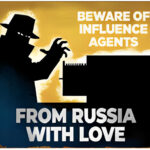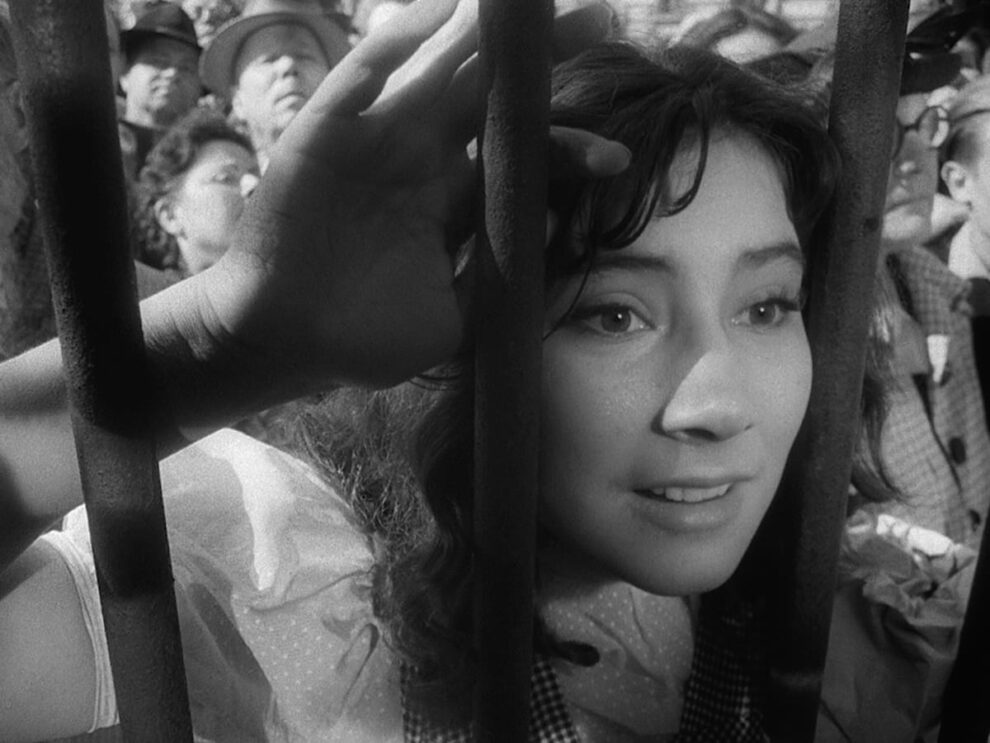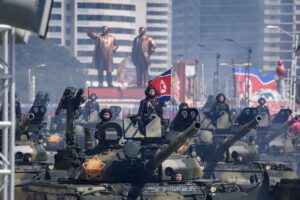The Russian film industry is one of the oldest in the world, with the country’s earliest films being released during the early years of the 20th century.
Russian-language movies continued to be produced to great acclaim throughout the era of the Soviet Union, with numerous highly-regarded Russian-language films being released during this period in history (1922-1991).
The Russian film industry is one of the oldest in the world, with the country’s earliest films being released during the early years of the 20th century. Russian-language movies continued to be produced to great acclaim throughout the era of the Soviet Union, with numerous highly-regarded Russian-language films being released during this period in history (1922-1991).
‘Solaris’ (1972)
Letterboxd Rating: 4.2/5
An intriguing and deliberately paced science-fiction film directed by Andrei Tarkovsky, Solaris sits at an impressive average rating of 4.2/5, according to Letterboxd users. It’s a nearly three-hour film about a psychologist sent to a space station to treat the various disturbed astronauts staying there, only to find his mind unraveling while in space.
Famously, Tarkovsky was outspoken against 2001: A Space Odyssey, which Solaris is sometimes compared to, thanks to being long, deliberately paced, and thematically dense. Tarkovsky potentially made this sci-fi film to comment on the then —recently released Stanley Kubrick film, making them interesting to watch together to compare and contrast the two.
‘Nostalgia’ (1983)
Letterboxd Rating: 4.2/5
A co-production between the USSR and Italy, Nostalgia is one of Andrei Tarkovsky’s densest and most intriguing films. It follows a poet and his interpreter from Russia who travels to Italy to research the life of a composer from the 18th century, only to meet a man named Domenico, who discusses his strange views of the world with the poet.
So begins an unusual relationship between the two men — one that ends up causing the poet to think back on his life, the people he knows, and the history of where he comes from. It’s a perplexing but interesting character study, featuring an expectedly deliberate pace and a great many things to say about human nature.
‘Man with a Movie Camera’ (1929)
Letterboxd Rating: 4.2/5
To call Man with a Movie Camera, a revolutionary documentary would be an understatement. It’s a frenetic and astoundingly well-edited silent film that depicts life in Moscow during the 1920s, presenting what would usually be mundane events in a way that makes them exciting and visually spectacular.
Unlike the other Russian films it shares a high Letterboxd rating with, it’s not on the site’s Top 250 Feature Films list because of the fact documentaries are excluded. It remains an essential watch for film buffs regardless of how much they may tend to enjoy documentaries, owing to the fact it’s a historically important movie that helped redefine the limits of what could be done through shot composition and editing.
‘Mirror’ (1975)
Letterboxd Rating: 4.3/5
Mirror is another Andrei Tarkovsky film with a remarkably high rating on Letterboxd. It’s an intimate character study that also serves to document various events in the history of the Soviet Union, all framed as memories a dying middle-aged man is recalling.
Structurally and stylistically, Mirror is an exceptionally bold film, as the past interweaves with the present, and the various memories shown on screen are presented in non-chronological order. It’s a very dense movie to watch, even by Tarkovsky’s standards, but it will likely prove rewarding to viewers willing to engage with it on as deep a level as possible.
‘The Ascent’ (1977)
Letterboxd Rating: 4.3/5
Presenting one of the most haunting looks at World War II in film history, The Ascent stands as a brilliant and somewhat underrated war movie. It follows two men who need to venture into occupied German territory for supplies, with their journey being a particularly grueling — and heartbreaking — one to see play out on-screen.
The most striking thing about The Ascent is how well it captures the chilliness of its setting, as few films convey such a visceral sense of cold conditions. It’s a harrowing film to watch and might not be the kind of movie everyone can enjoy, though it’s undeniably powerful. As such, it’s well-respected on Letterboxd, given its average rating on the site of 4.3/5.
‘The Cranes Are Flying’ (1957)
Letterboxd Rating: 4.3/5
Combining the romance and war genres into one brutally effective and emotional movie, The Cranes Are Flying is another highly-rated war movie made in the USSR. It centers on two young lovers — Veronika and Boris — who fall for each other right before the start of World War II, yet are tragically separated when Boris is sent off to fight at the war’s outset.
Their desire to reunite continually gets delayed, owing to the war’s long, drawn-out nature, making The Cranes Are Flying one of those films that just gets sadder with every scene. That makes it a sometimes challenging watch, but it’s worth it for the simple yet hard-hitting narrative and the staggering visuals.
‘War and Peace’ (1965)
Letterboxd Rating: 4.3/5
Few films can claim to be as epic as this film adaptation of War and Peace. Split into four parts and playing out over approximately seven hours, it’s a gargantuan filmmaking achievement that serves as a surprisingly faithful film version of the famed novel of the same name by Leo Tolstoy.
Depicting various characters experiencing love and war during a tumultuous period in Russian history, it’s an epic story that more than earns its long runtime. Some viewers may feel put off by the fact it goes for seven hours, but it’s neatly divided into four relatively complete parts, with it ultimately being better to watch it in those four chunks instead of all in one go.
‘Andrei Rublev’ (1966)
Letterboxd Rating: 4.4/5
A biopic about the famed Russian painter Andrei Rublev, this film stands as Andrei Tarkovsky’s longest film, with a runtime of just over three hours. It diverges from the usual life-to-death narrative of most biopics, however, as it presents Rublev’s life in a radical, sometimes dreamy, and poetic way.
Andrei Rublev is still one of Tarkovsky’s most accessible films and focuses on more of a concrete narrative than many other acclaimed films of his. Its presentation can be very out of the ordinary, but at its core, its plot is direct, with the contrast between the historical story and experimental style making for an interesting viewing experience.
‘Stalker’ (1979)
Letterboxd Rating: 4.4/5
Andrei Tarkovsky’s highest-rated film on Letterboxd is also his most famous. That title is Stalker, and it’s a slow-burn science-fiction movie about three men venturing into a strange location known only as the Zone, which is an almost alien location that allegedly grants wishes to anyone who dares to venture into its center.
At 162 minutes, Stalker can be an exhausting movie to watch, with this sensation only exacerbated by its deliberate pacing. Yet its haunting images and intense exploration of its characters’ psyche make for an experience that proves difficult to shake, with Letterboxd users finding it powerful enough for it to have a spot high on the Top 250 feature film list found on the site.
‘Come and See’ (1985)
Letterboxd Rating: 4.6/5
Not only is Come and See the highest-rated Russian movie on Letterboxd, it currently stands as the highest-rated film on the site, full-stop. It’s renowned for being one of the most intense anti-war films of all time, following a young boy who gets swept up in World War II, forced into the conflict, and dealing with how it gradually shatters his psyche as the fighting goes on.
It’s genuinely horrifying and even traumatic to watch because it refuses to pull punches or back away from being unflinching for its entire duration. It’s the best-known film by director Elem Klimov, who notably was married to fellow director Larisa Shepitko, herself behind another great Soviet-era WW2 film: 1977’s The Ascent.
Source: Collider















